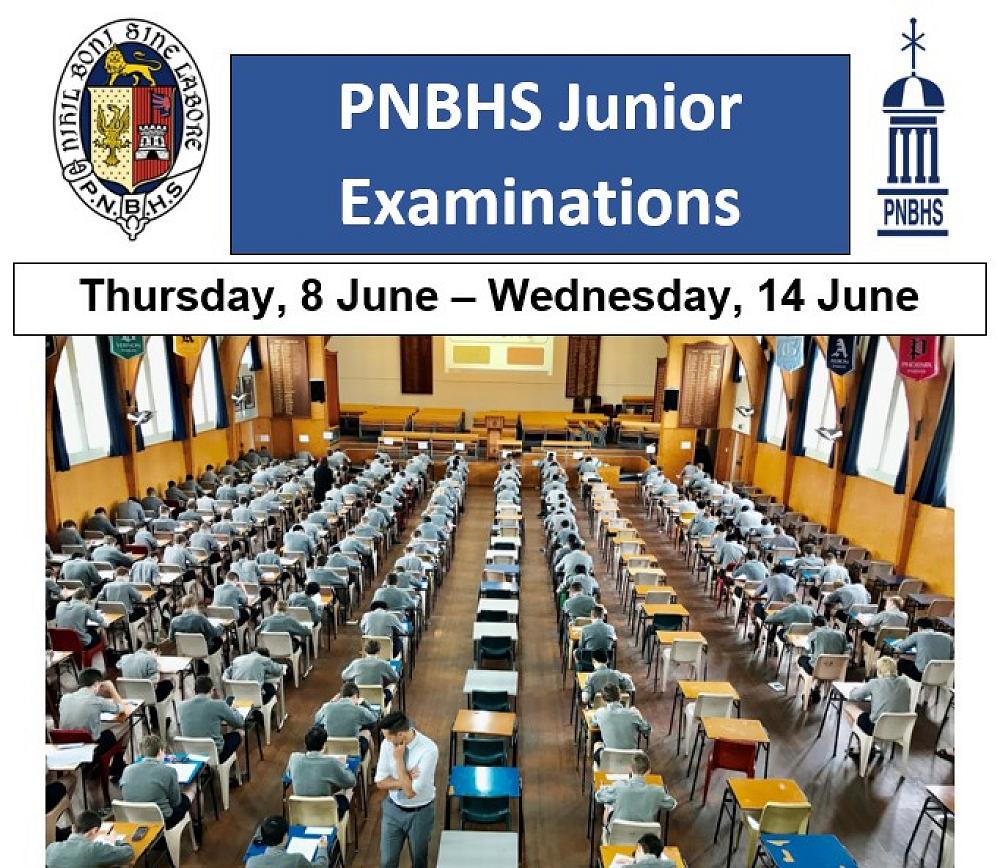
PNBHS Junior Examinations
Thursday 8 June - Wednesday 14 June
The examination schedule and other organisational information can be downloaded from the bottom of this article. There is separate information for (i) Year 9 students, (ii) 10SC and 10PA, (iii) 10DT and (iv) all other Year 10 students.
Hints and advice for exam preparation:
Organisation
· It is best to have a regular place that you study at, and complete your homework. It should be a place where there is sufficient light, heating/ventilation, chair and desk.
· Have all the correct gear with you: Blank paper, pens, pencils, ruler, calculator, highlighters, water, relevant folders and books. Cell phone turned off and in a different room!
· Avoid studying in a place where you could be distracted by television or background noise.
· Drink water, NOT coffee, tea, coke or energy drinks.
Plan
· Make a study plan. Have a written plan so that there is a visual reminder of what you have done. Ensure that you keep to the plan.
· Divide each topic into 35-40 minute revision sessions. Don’t try and put in hour-long sessions. It is far easier to fit in shorter sessions of study.
· Slot these sessions into your weekly revision timetable. Work backwards from the date of your examination.
· Remember to ask your teacher for help if there is a portion of work you are having problems with. Don’t leave issues with revision until the day before your exam.
Study tips
· You generally only remember 20% of what you read. So reading through your notes is not an effective study method by itself.
· After an hour there is a rise in the amount of information you are able to recall, but 80% of this is lost after 24 hours if you do not go back to it.
· You can overcome this by organising your revision in 35-40 minute slots. Take a five minute break and then spend the first five minutes of the next session re-capping what you learnt previously.
· Begin each night’s session with a quick 10 minute recap of what you covered the previous day.
· Once a week spend 15 minutes going over the main ideas you covered during the week in each subject.
Use your senses
· Your senses are the powerful memory tool you have.
· The more senses you use in your revision, the more likely you are to remember things so use a combination of:
· Touch – pen in hand.
· Vision – colour and pictures – different font sizes, styles and colours for written work.
· Sound – read your notes aloud, record them on cell phone, listen to them when you are relaxed.
· The best way to learn is to teach – use your parents, teach them about what you have learned.
